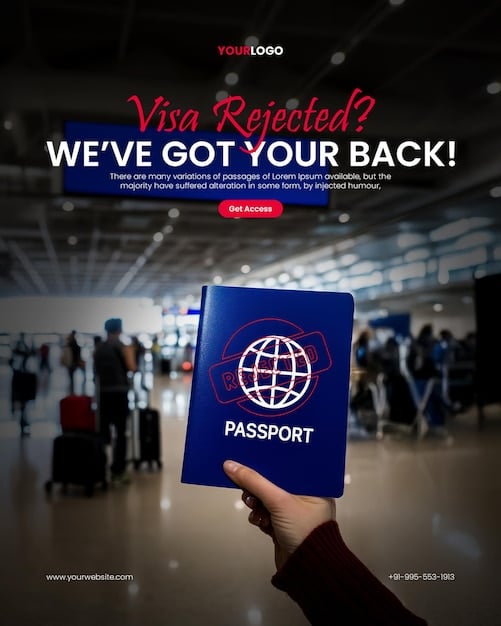Digital Nomad Alert: New US Regulations Impacting US Remote Work Visas

Digital Nomad Alert: New US Regulations Impacting Remote Work Visas – What You Need to Know Now explores the changing landscape of remote work visas in the United States, providing essential information for digital nomads to continue to work in compliance as they navigate an evolving legal landscape.
Digital Nomad Alert: New US Regulations Impacting Remote Work Visas – What You Need to Know Now is crucial information for those planning to work remotely from the United States.
Understanding the Shifting Landscape of US Remote Work Visas
The digital nomad lifestyle, characterized by location-independent work and travel, has gained immense popularity in recent years. As more individuals embrace remote work opportunities, the United States, known for its vibrant tech industry and diverse cultural experiences, has become a sought-after destination. However, navigating US immigration laws and regulations can be complex, especially when it comes to remote work visas.
Recent changes in US regulations have introduced new challenges and opportunities for digital nomads seeking to legally reside and work in the country. It’s essential to stay informed about these updates to ensure compliance and avoid potential legal issues. This article provides a comprehensive overview of the new regulations impacting remote work visas in the US, offering practical guidance for digital nomads.

Key Challenges for Digital Nomads in the US
Digital nomads face several key challenges when seeking to work remotely in the US legally. Understanding these challenges is the first step toward navigating the complex landscape of US immigration law.
- Visa Limitations: Traditional visa categories, such as the B-1/B-2 visitor visa, typically do not allow for employment or long-term residence. Digital nomads working for foreign companies may find it challenging to find a visa that fits their specific needs.
- Tax Implications: Determining tax obligations can be complex for digital nomads. Depending on their length of stay and income sources, they may be subject to US federal and state taxes, even if their employer is located outside the country.
- Healthcare Access: Accessing affordable healthcare is a significant concern for digital nomads. Many traditional health insurance plans do not provide adequate coverage for long-term travel or medical emergencies.
Staying informed about these challenges will make working in the US as a digital nomad easier and more straightforward. Being aware of these challenges enables people working remotely to plan accordingly and make informed decisions about their visa options and tax obligations.
Exploring Current US Visa Options for Remote Workers
For digital nomads looking to reside and work legally in the United States, understanding the available visa options is essential. While the US does not currently offer a specific “digital nomad visa,” several existing visa categories may be suitable.
These options provide paths for long-term stays, but being aware of all options means remote workers can choose options that best meet their professional goals. Choosing the right visa option is critical for remaining compliant with immigration laws and maintaining long-term opportunities for remote work in the United States.

The B-1/B-2 Visitor Visa: A Limited Solution
The B-1/B-2 visitor visa is one of the most common options for tourists and business travelers visiting the United States. While it may seem like a convenient way for digital nomads to enter the country, it has significant limitations.
- Restricted Work Activities: The B-1/B-2 visa is intended for temporary visits for tourism or business purposes, such as attending conferences or meeting with clients. It does not authorize employment or active engagement in paid work within the US.
- Short Stay Duration: Typically, B-1/B-2 visas allow stays of up to six months, with the possibility of extensions. This may not be sufficient for digital nomads who wish to reside in the US for longer periods.
- Enforcement Risks: Engaging in unauthorized work activities while on a B-1/B-2 visa can have serious consequences, including visa revocation, deportation, and future entry bans.
Digital nomads must be aware of the restricted activities of the B-1/B-2 visitor visa and whether or not it is the right option to allow them to work in the US remotely.
The E-2 Treaty Investor Visa: An Opportunity for Entrepreneurs
The E-2 Treaty Investor Visa offers a pathway for entrepreneurs from treaty countries to invest in and manage a business in the United States. This visa category may be suitable for digital nomads who are looking to establish or acquire a business in the US.
The E-2 visa allows entrepreneurs to work and reside in the US, but comes with its own set of requirements. Careful planning and compliance with the guidelines are essential for navigating the process successfully. Let’s take a closer look at the details.
Requirements for the E-2 Visa
To qualify for the E-2 visa, applicants must meet certain requirements, including:
- Treaty Country Citizenship: Applicants must be citizens of a country that has a treaty of commerce and navigation with the United States.
- Substantial Investment: The investment must be substantial, meaning it should be sufficient to ensure the successful operation of the business.
- Active Management: The investor must actively manage the business, rather than being a passive investor.
There are several elements you must meet in order to apply for this visa. Meeting the necessary requirements is the first step in successfully pursuing the E-2 visa option as a digital nomad. Being aware of what’s expected helps entrepreneurs make informed decisions and prepare effectively for their visa application process.
The O-1 Visa: For Individuals with Extraordinary Ability
The O-1 visa is designed for individuals with extraordinary ability in the sciences, arts, education, business, or athletics. Digital nomads who have achieved significant recognition or success in their field may be eligible to apply for this visa.
This visa offers a path to work and live in the US for a specific period, it also requires substantial documentation and evidence to demonstrate extraordinary ability. Let’s explore the eligibility criteria and application process in more detail.
Eligibility Criteria for the O-1 Visa
To qualify for the O-1 visa, applicants must demonstrate extraordinary ability by providing evidence of sustained national or international acclaim. This can include:
- Awards and Recognition: Receipt of nationally or internationally recognized prizes or awards.
- Membership in Selective Organizations: Membership in associations that require outstanding achievements of their members.
- Published Material: Published articles, books, or other scholarly writings in professional or major trade publications.
Demonstrating that you are qualified for the O-1 visa will require gathering the right information and having a solid case. Understanding the eligibility criteria for the O-1 visa is critical for determining whether this option suits a digital nomad. A strong case supported by thorough documentation will enhance your prospects of obtaining this type of visa.
New Regulations and Their Impact on Remote Work
As remote work becomes increasingly prevalent, the US government is adapting its regulations to address the changing needs of the workforce. Recent changes aim to clarify the rules and provide more flexibility for foreign nationals seeking to work remotely within the country.
Understanding these changes can provide digital nomads a more solid place to work out of the US. Staying updated on these evolving policies is crucial for digital nomads to ensure their compliance and long-term viability in the US.
Increased Scrutiny of Remote Work Activities
While the US government recognizes the growing importance of remote work, it has also increased its scrutiny of remote work activities conducted by foreign nationals. This means that immigration officials are more closely examining the nature of the work being performed and whether it complies with visa regulations.
- Enforcement Actions: There have been reports of increased enforcement actions against individuals suspected of engaging in unauthorized work activities while on visitor visas.
- Employer Compliance: Employers who hire remote workers from abroad must ensure they comply with US labor laws and immigration regulations.
- Documentation Requirements: Digital nomads may be required to provide additional documentation to demonstrate that their work activities are permitted under their visa status.
By being fully aware of how remote work regulations are currently being viewed, you can be a more confident digital nomad when you choose to work remotely in the US.
Strategies for Navigating US Remote Work Regulations
Navigating US remote work regulations can be challenging, but with careful planning and proactive measures, digital nomads can successfully comply with the law and enjoy the benefits of working remotely from the United States.
This involves understanding and applying practical steps to ensure appropriate visa status and compliance. Here are some valuable methods to help you navigate the legal landscape.
Seeking Legal Counsel
One of the most effective strategies for navigating US remote work regulations is to seek guidance from an experienced immigration attorney. An attorney can provide personalized advice based on your specific circumstances and help you understand your visa options.
- Visa Selection: An attorney can help you determine which visa category best suits your needs and assist with the application process.
- Compliance Advice: An attorney can provide guidance on complying with US labor laws, tax obligations, and other regulations.
- Risk Mitigation: An attorney can help you identify potential risks and develop strategies to mitigate them.
Engaging a knowledgeable attorney can provide valuable insights and help you avoid potential pitfalls. Lawyers stay up-to-date on the latest regulatory changes and can offer specialized advice that considers your individual situation.
Conclusion
In conclusion, navigating the evolving landscape of US remote work visas requires digital nomads to stay informed, plan carefully, and seek professional guidance when necessary. While the US does not currently offer a dedicated digital nomad visa, several existing visa categories may be suitable for those looking to legally reside and work in the country.
| Key Point | Brief Description |
|---|---|
| 🛂 Visa Options | Explore visa options like B-1/B-2, E-2, and O-1 for legal remote work in the US. |
| ⚖️ New Regulations | Stay updated on the changing regulations impacting remote work visas in the US. |
| 🧑⚖️ Legal Counsel | Seek guidance from an immigration attorney to ensure compliance and understand visa options. |
| 💼 Business Establishment | Consider establishing a business in the US to qualify for visas like the E-2 Treaty Investor Visa. |
Frequently Asked Questions (FAQ)
▼
The B-1/B-2 visa does not allow employment or active engagement in paid work within the US. It is intended for temporary visits for tourism or business purposes only.
Why is staying informed about US remote work visa regulations important?
▼
Staying informed is crucial to ensure compliance with US immigration laws, avoid legal issues, and make informed decisions about your visa options and tax obligations.
What are some challenges digital nomads face in the US?
▼





